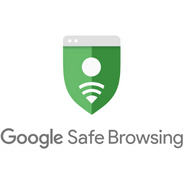Benefit eligibility criteria: what you need to know

Anúncios
Benefit eligibility criteria are specific requirements individuals must meet to qualify for assistance programs, encompassing factors like income, residency, and necessary documentation.
Benefit eligibility criteria are vital for anyone looking to access support and assistance. Have you ever wondered what it takes to qualify and get those benefits you need? Stick around as we dive into the essential factors that define eligibility and empower you to navigate the system smoothly.
Anúncios
Understanding benefit eligibility criteria
Understanding benefit eligibility criteria can seem daunting at first, but it is essential for accessing the support you may need. It’s the first step in ensuring you receive the benefits that can make a significant difference in your life. This article will guide you through the critical factors and common requirements that define these criteria.
What are eligibility criteria?
At its core, eligibility criteria are specific conditions or requirements that must be met for a person to qualify for benefits. Different programs have unique criteria, and understanding these can help you better navigate the application process.
Anúncios
Key factors to consider
- Age: Many benefits, such as retirement funds or educational grants, have age limits.
- Income: Your financial situation is often assessed to determine if you qualify for specific benefits.
- Residency: Eligibility may depend on where you live or your status as a resident.
- Employment status: Certain programs require applicants to be actively employed or searching for work.
It’s also important to note that eligibility can be affected by other factors, such as disability status or family size. Each of these elements plays a vital role in shaping the decision of whether you qualify. If you are unsure about your standing, consider reaching out to local assistance agencies for guidance.
Moreover, keeping comprehensive documentation can help streamline the process. For example, when applying, ensure you have proof of income, identification, and any other required documents readily available. This will not only improve your chances of qualifying but also speed up the application process.
The complexity of benefit eligibility criteria can vary widely, depending on the type of benefits you are pursuing. Familiarizing yourself with the specific requirements of each program can save you time and anxiety when applying.
How to check your eligibility

Knowing how to check your eligibility for benefits can help you make informed decisions and access the support you deserve. This process is often straightforward, and understanding the steps involved is crucial. In many cases, you can start by reviewing the specific criteria related to the benefits you are interested in.
Start with official sources
The best way to begin checking your eligibility is to visit the official website of the program offering benefits. Here, you will find comprehensive information regarding the conditions required for applicants. These sites typically have clear eligibility guidelines that outline what is needed.
Gather necessary documents
Before proceeding, make sure to gather any pertinent documents. This may include:
- Identification: A valid ID or social security number may be required.
- Proof of income: Recent pay stubs or tax returns can demonstrate your financial situation.
- Residency documentation: Utility bills or lease agreements may verify where you live.
- Employment status: Letters from employers or recent job applications can be helpful.
Once you have the documents ready, the next step is to fill out any application or eligibility forms. Many applications can be completed online, making it easier to submit your information.
Keep in mind that some programs may require additional assessments. For instance, if you are applying for health-related benefits, a health assessment may be necessary. This helps determine if you meet the medical criteria set by the program. During this time, it’s important to follow up to ensure that your application is being processed.
If you find the process overwhelming, don’t hesitate to seek help. Many local organizations provide assistance with benefit applications, and they can guide you through the eligibility checking and application process.
Common types of benefits and their requirements
There are several common types of benefits available to people, each with its own specific requirements. Understanding these types can help you determine which ones you might qualify for. By knowing the basic requirements, you can streamline your application process and improve your chances of receiving assistance.
Cash Assistance
Cash assistance programs typically help individuals and families who are in financial need. To qualify, you usually need to provide proof of income and demonstrate limited financial resources.
Food Assistance
Food assistance, such as the Supplemental Nutrition Assistance Program (SNAP), requires applicants to meet certain income guidelines. Eligibility is often based on household size, income, and expenses. It’s important to gather the necessary documents, such as income statements and proof of residency, when applying.
Housing Assistance
Housing benefits aim to provide support for individuals struggling with rent or housing costs. Applicants typically need to show their income level, family size, and housing situation. Programs like Section 8 require applicants to meet specific income limits, which may vary by location.
- Income limits: Depending on where you live, certain programs have distinct income thresholds.
- Family size: Many benefits consider the number of people in your household.
- Citizenship status: Most programs require beneficiaries to be U.S. citizens or eligible non-citizens.
Healthcare benefits can also be crucial. Programs like Medicaid and Medicare offer health coverage based on various factors, including age, disability, and income. You may need to complete an application and provide documentation like proof of income and residency status to qualify.
Job training and educational assistance programs often require you to be actively seeking employment or enrolled in school. Requirements may include providing proof of job searches or school enrollment, as well as financial documentation.
Tips for meeting eligibility criteria

Meeting eligibility criteria for benefits can be critical for gaining the support you need. There are several practical tips that can help you navigate this process successfully. By following these guidelines, you can improve your chances of qualifying for the assistance programs you seek.
Understand the requirements
The first step is to thoroughly understand the specific requirements of the program you are interested in. Visit official websites and read all the guidelines carefully. Make a checklist of the necessary documents and qualifications.
Keep organized documentation
Having your documents well-organized can make a big difference. Important documents may include:
- Identification: Keep your ID and social security card accessible.
- Proof of income: Gather recent pay stubs, tax returns, and bank statements.
- Residency documentation: Collect utility bills, leases, or other proof of residence.
- Supporting evidence: If applicable, have medical records or other relevant supporting documents on hand.
Being organized doesn’t just help you submit your application smoothly; it also reduces stress. When everything is in order, you won’t have to scramble at the last minute.
Next, pay attention to deadlines. Many benefit programs have specific application periods. Make sure you know these dates and set reminders to apply on time. Being late can jeopardize your chances of receiving assistance.
Another important tip is to ask for help. If you are uncertain about any part of the process, consider reaching out to local aid organizations. They can provide information, answer questions, and help you complete applications correctly.
Regularly review your eligibility status as well. Keep an eye on any changes in your financial situation or life circumstances, as they may impact your eligibility.
What to do if you’re denied benefits
If you’ve been denied benefits, it’s important to know that you have options and steps to take. Understanding the reasons for the denial is crucial. Usually, denial letters explain why your application was not approved. Familiarizing yourself with the specific reasons will help you address the issues effectively.
Review the denial letter
Your first step should be to carefully review the denial letter. This document provides insight into why your application was rejected. It may highlight missing documents, not meeting the income requirements, or other criteria that were not satisfied.
Gather additional documentation
Once you understand the reasons for denial, you may need to gather additional evidence. These documents can reinforce your application. Consider the following items:
- Proof of income: Updated pay stubs or tax forms can help clarify your financial situation.
- Medical records: If you’re applying for disability benefits, additional medical documentation may support your claim.
- Letters of support: Gather reference letters from credible sources that can attest to your situation.
After compiling the necessary documentation, you can appeal the decision. Most benefit programs have a formal appeal process you can follow. This process typically involves submitting your appeal in writing, along with any additional evidence supporting your case.
Be aware of the deadlines associated with appeals. Each program has its own timeline, and missing these deadlines can hinder your chances of approval later. When in doubt, reach out to a local advocacy organization for assistance. They can guide you through the appeals process and provide valuable resources.
Keep copies of all documents related to your appeal for your records. This will help you track your progress and maintain a comprehensive understanding of your case.
Resources for assistance with eligibility

When navigating the complex world of eligibility for benefits, having the right resources at your disposal can make all the difference. There are numerous organizations and tools available to assist you in understanding the requirements and completing your applications.
Local government agencies
Your local government is often the first place to look for assistance. Many cities and counties have dedicated offices that handle benefit applications. These offices can provide information about available programs, eligibility criteria, and application processes.
Non-profit organizations
Numerous non-profit organizations specialize in helping individuals access benefits. They often offer resources such as:
- Free consultations: Speak with experts who can guide you through the eligibility requirements.
- Workshops: Attend workshops that educate you about the benefits available and how to apply.
- Advocacy: Some organizations advocate on your behalf to ensure that you receive the benefits for which you qualify.
Additionally, online platforms can be valuable. Websites dedicated to benefits information typically offer comprehensive resources, including eligibility checkers and application forms. These tools can provide you with tailored information based on your situation, helping you to identify which benefits you may qualify for.
Community centers and libraries are also good resources for accessing information. These places often have pamphlets and flyers detailing local assistance programs, as well as staff who can direct you to the right sources.
Moreover, if you are struggling to navigate the application process, consider reaching out to friends or family who may have experience. They can provide insights and emotional support as you go through this journey.
Conclusão
Understanding eligibility for benefits is essential for accessing the support you need. From knowing what to do if you’re denied benefits to finding resources for assistance, being informed can make a significant difference. Always remember to keep your documents organized, review the requirements closely, and seek help when necessary. With the right approach, navigating through the eligibility criteria can be manageable, helping you secure the benefits you deserve.
FAQ – Frequently Asked Questions about Benefit Eligibility
What should I do if my application for benefits is denied?
Carefully review the denial letter, gather additional documentation, and consider appealing the decision.
How can I find resources for assistance with eligibility?
You can reach out to local government agencies, non-profit organizations, and online platforms that provide guidance on benefits.
What types of documentation do I need to apply for benefits?
Typically, you’ll need proof of identity, income, residency, and any supporting evidence related to your circumstances.
How can I ensure I meet the eligibility criteria for benefits?
Understand the specific requirements, keep organized documentation, and seek help if you have questions about the process.






